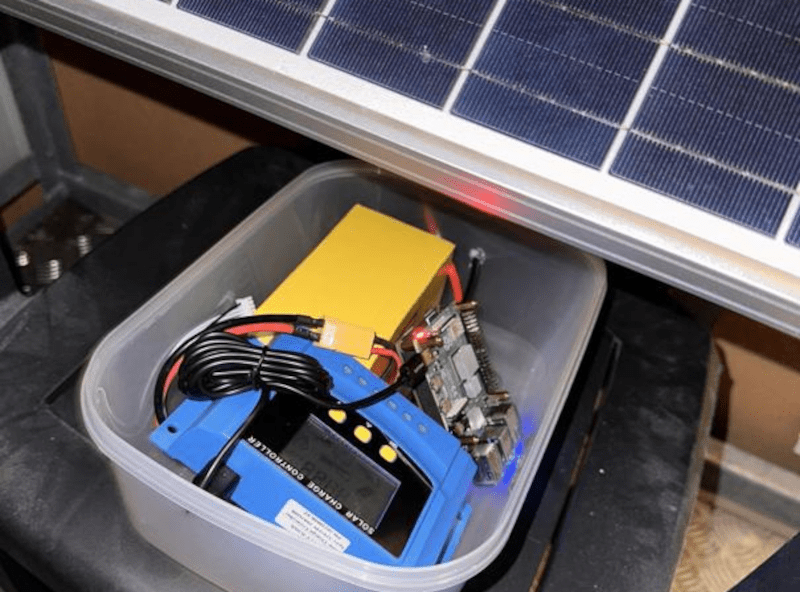Running a Raspberry Pi with solar power sounds easy. Of course, like most things, the details are what get you. About a year ago, [Bystroushaa] tried it without success. But the second time turned out to be the charm.
Of course, success is a relative term. It does work, but there is concern that it won’t be sufficient in the winter. In addition, if the battery dies, everything doesn’t restart automatically. Still, it is usable, and there should be ways to solve those problems.
The original attempt used a PiJuice hat and solar panel. This time, the design didn’t use these, opting instead for a LiFePO4 battery, a solar regulator, and a solar panel. The rest of it comes down to mechanical and physical mounting. The cheap regulator has some drawbacks. For example, it doesn’t allow for monitoring like more expensive units. It also cannot balance the cells periodically, although that could be done with an external controller.
We’ve seen solar-powered Pi boards before. Or, try a Game Boy.
















I successfully run a PI 400 with this:
https://www.amazon.it/Caricatore-Monocristallino-Pieghevole-Dispositivi-Ricaricabili/dp/B0998G1CSJ/r
Curiously the panel in the article has triple the rated power output.
Of course, geography could play a large role too…
They mention MPPT at least twice, but purchased a PWM solar charge controller.
I presume that there was a price and/or availability problem.
Does anyone know of a portable cell phone battery charger, that outputs while it’s being charged?
One I can confirm from personal use is Baseus’ 100W Blade powerbank. Gets a bit toasty around the ports, though.
You mean a battery pack? Check Amazon Q&A — there’s a few around, but it is a bit of a needle/haystack thing.
https://lygte-info.dk/review/Review%20USB%20battery%20box%20Blitzwolf%20QC3%20power%20bank%2010000mAh%20BW-P3A%20UK.html this one does but I’m not sure about any voltage over 5v. I also like Dollarama cheap power banks as they automatically output on disconnect. I have them as emergency lighting.
The restart from low battey was the hardest issue of a solar powered radio network based on ESP32.
With average of 100 mW consumption, a 2W solar panel and a 18650 work reliably in the Alps from february to november.
Short and cloudy days dry the battery out. And extra solar power cannot insure a 24/365 availability.
From low battery, when the power voltage ramp is slow, the system enters in a brown state. The obvious fix is a manual power cycle. As the vehicules cannot access the remote areas with snow for 3 months, a manual restart requires a ski ride.
The microcontroller has now a clean power up with sufficient voltage to boot reliably.
The BMS has been modified to adjust the low battery recovery voltage.
Last winter, the system restarted on sunny days and worked with no human maintenance.
A deep knowledge of the power system health is provided by the real time plot of the battery voltage.